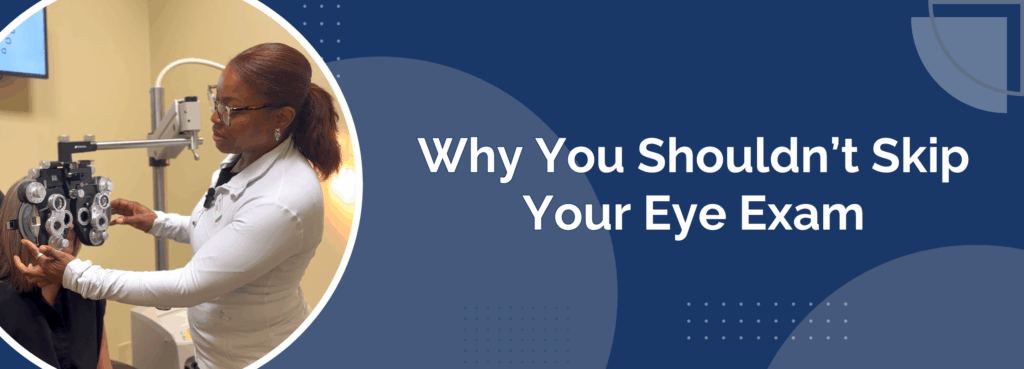Cataracts,Diabetic Retinopathy,General Eye Care,Glaucoma

Seeing Clearly Doesn’t Always Mean Seeing Healthy
It’s easy to think that if your vision feels fine, your eyes must be healthy. But many eye conditions—including cataracts, glaucoma, and diabetic eye disease—can develop without noticeable symptoms in their early stages. At Sweeney Eye Associates, serving Sunnyvale, Richardson, and nearby Texas communities, we remind our patients that routine eye exams are one of the most effective ways to protect long-term vision and detect problems early.
Why You Shouldn’t Skip Your Annual Eye Exam
1. Eye Diseases Can Develop Silently
Many sight-threatening conditions, such as glaucoma, macular degeneration, or diabetic retinopathy, progress without early warning signs. A comprehensive eye exam allows your eye doctor to detect subtle changes before vision loss occurs.
Common conditions detected early with exams include:
- Cataract progression
- Diabetic eye disease
- Glaucoma
- Dry eye disease
- Retinal disorders
2. Vision Changes Can Be Subtle
Even if you’ve had cataract surgery or laser vision correction, your eyes can continue to change. Prescription adjustments, dry eyes, or secondary cataract (posterior capsule opacification) can cause vision changes that are only noticeable under examination.
3. Eye Exams Reveal More Than Eye Health
Did you know your eye exam can detect signs of systemic health conditions? Diseases such as diabetes, hypertension, and high cholesterol can show up in the eyes before symptoms appear elsewhere in the body.
By checking your retina and optic nerve health, your eye doctor can help identify potential medical concerns and coordinate with your primary care physician if needed.
4. Post-Surgery Follow-Ups Protect Long-Term Results
If you’ve undergone cataract surgery, LASIK, or any other vision procedure, you might think you’re “done.” But maintaining your results requires monitoring.
Your ophthalmologist checks for:
- Lens clarity and stability of intraocular lens implants
- Dry eye symptoms or inflammation after surgery
- Secondary cataracts (posterior capsule opacification)
- Overall retinal and corneal health
5. Prevention Is Always Better Than Treatment
Scheduling annual eye exams helps prevent small issues from becoming major concerns. The earlier a condition is caught, the easier and more effective treatment can be.
Benefits of staying consistent with exams:
- Early diagnosis = better outcomes
- Lower treatment costs over time
- Peace of mind knowing your vision is protected
How Often Should You Schedule an Eye Exam?
The American Academy of Ophthalmology recommends:
- Adults (18–40): Every 2 years
- Adults (40–64): Every 1–2 years
- Adults 65+: Every year
- Post-surgery or diabetic patients: As advised by your eye doctor
If you notice blurred vision, floaters, eye pain, or changes in color perception, don’t wait—schedule an exam right away.
Eye Health in the Sunnyvale and Richardson Communities
Residents of Sunnyvale, Richardson, and the surrounding areas trust Sweeney Eye Associates for their compassionate, advanced care. Our doctors provide:
- Comprehensive eye exams using the latest diagnostic technology
- Cataract evaluation and surgery
- LASIK and laser vision correction
- Diabetic and glaucoma management
- Routine and preventive eye care
Frequently Asked Questions
Protect Your Vision Today Even if your eyes feel fine, skipping your routine eye exam can put your vision at risk. Whether you’ve had surgery or not, ongoing monitoring is key to keeping your eyes healthy for life.





